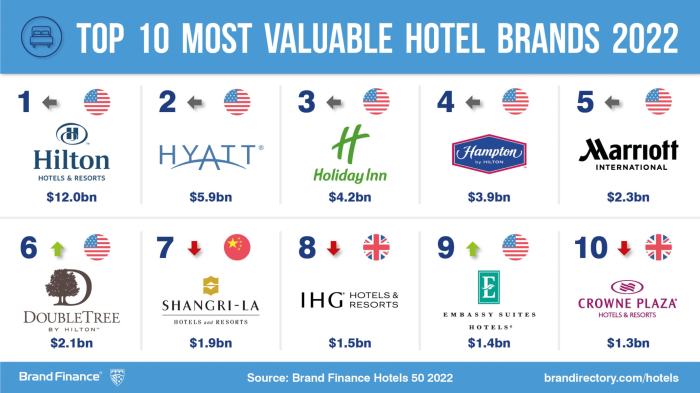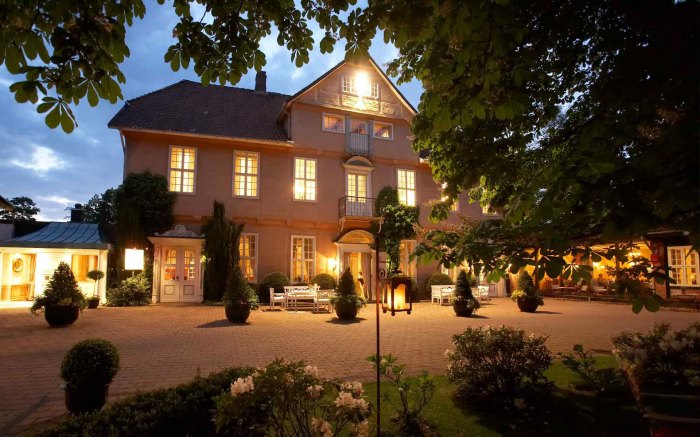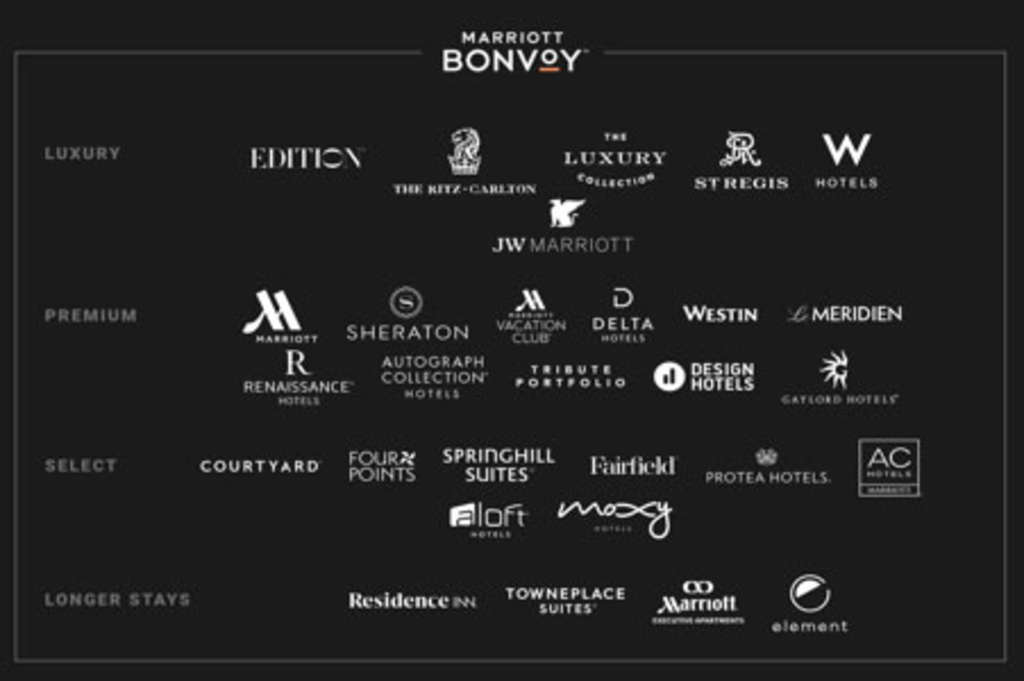Delve into the world of german owned hotel chains, where family-owned businesses and international investors shape the industry. From their domestic dominance to their global expansion, these chains offer a unique blend of tradition and innovation.
German hotel chains have carved out a significant market share both domestically and internationally, with a strong presence in key geographic regions. Their brand portfolios cater to diverse target markets, and their expansion strategies have driven their global footprint.
Hotel Ownership Structure
The ownership structure of German hotel chains is a complex and diverse landscape. It is characterized by a mix of family-owned businesses, international investors, and publicly traded companies.
Family-owned businesses have a long tradition in the German hotel industry. Many of the country’s leading hotel chains, such as Kempinski, Steigenberger, and Maritim, are still owned and operated by the families that founded them.
In recent years, international investors have increasingly acquired stakes in German hotel chains. This trend is driven by the growing global demand for hotel accommodations and the perceived stability of the German economy.
Publicly traded companies also play a significant role in the German hotel industry. Some of the largest hotel chains in the country, such as Deutsche Hospitality and AccorHotels, are listed on the stock exchange.
Family-Owned Businesses
Family-owned businesses are a cornerstone of the German hotel industry. They have a deep understanding of the local market and a long-term commitment to their guests.
- Family-owned businesses are often more flexible and responsive to market changes than larger, publicly traded companies.
- They are also more likely to invest in their properties and staff, which can lead to higher levels of guest satisfaction.
International Investors
International investors are increasingly attracted to the German hotel industry. They are drawn by the country’s strong economy, stable political environment, and growing tourism sector.
- International investors can provide German hotel chains with access to capital and expertise that they may not otherwise have.
- They can also help to raise the profile of German hotel chains on the international stage.
Publicly Traded Companies
Publicly traded companies are another important player in the German hotel industry. They have the financial resources to invest in large-scale projects and to expand their operations rapidly.
- Publicly traded companies can also provide investors with a way to participate in the growth of the German hotel industry.
- However, they may be more focused on short-term profits than family-owned businesses or international investors.
Market Share and Presence: German Owned Hotel Chains

German hotel chains have established a substantial presence in the global hospitality industry, capturing a significant market share both domestically and internationally.
Within Germany, German chains dominate the market, accounting for over 70% of all hotel rooms. This dominance is driven by a combination of factors, including a strong domestic tourism sector, a favorable business climate, and a well-developed infrastructure.
International Presence
Internationally, German hotel chains have expanded their reach significantly over the past few decades. They have established a strong presence in key tourist destinations across Europe, Asia, and the Americas.
- In Europe, German chains have a particularly strong presence in neighboring countries such as Austria, Switzerland, and the Netherlands. They also have a significant presence in major tourist destinations such as London, Paris, and Rome.
- In Asia, German chains have made significant inroads into China, Japan, and Southeast Asia. They have established a number of luxury and upscale hotels in these regions, catering to the growing demand for high-end accommodations.
- In the Americas, German chains have a strong presence in the United States, Canada, and Mexico. They have established a number of mid-scale and upscale hotels in these markets, targeting both business and leisure travelers.
Brand Portfolio and Positioning
German hotel chains have developed a diverse portfolio of brands to cater to the needs of different market segments. Each brand is carefully positioned to appeal to a specific target market and offers unique amenities and services to differentiate itself from competitors.
Brand Differentiation Strategies
German hotel chains employ various strategies to differentiate their brands, including:
- Target market segmentation:Brands are designed to cater to specific market segments, such as business travelers, leisure travelers, or families.
- Brand positioning:Brands are positioned to occupy a distinct position in the minds of consumers, often based on factors such as price, quality, or service.
- Key amenities and services:Brands offer unique amenities and services to meet the specific needs of their target market, such as free Wi-Fi, fitness centers, or room service.
- Brand personality:Brands develop a distinct personality that resonates with their target market, often through marketing campaigns and customer interactions.
Expansion and Growth Strategies

German hotel chains have employed various strategies to expand their global footprint, including:
Organic growth:This involves opening new hotels under existing brands or developing new brands to cater to specific market segments.
Acquisitions:This involves acquiring existing hotel chains or individual hotels to gain market share and expand into new geographic regions.
Organic Growth
Organic growth strategies involve expanding the hotel chain’s presence through the development and opening of new hotels under existing brands or the creation of new brands. This allows the chain to increase its market share, enter new markets, and diversify its portfolio.
Europe is a continent with a rich history and culture, and its hospitality industry is no exception. If you’re planning a trip to Europe, you’ll be spoiled for choice when it comes to hotels. To help you narrow down your options, check out the biggest European hotel chains . These chains offer a wide range of properties, from budget-friendly options to luxurious resorts.
Acquisitions
Acquisition strategies involve the purchase of existing hotel chains or individual hotels to gain market share and expand into new geographic regions. This allows the chain to quickly increase its presence in a particular market or gain access to desirable locations or brands.
Competitive Landscape

German hotel chains face competition from both domestic and international players. Domestic competitors include Accor, B&B Hotels, and Motel One, while international competitors include Marriott International, Hilton Worldwide, and IHG.
German chains have several strengths that differentiate them from their competitors. These include a strong brand reputation, a focus on quality and service, and a commitment to sustainability. German chains also benefit from their strong presence in the domestic market, which gives them a competitive advantage over international competitors.
Strengths of German Hotel Chains
- Strong brand reputation
- Focus on quality and service
- Commitment to sustainability
- Strong presence in the domestic market
Weaknesses of German Hotel Chains
- Limited presence in international markets
- Relatively high operating costs
- Vulnerability to economic downturns
Technological Advancements

Technology plays a pivotal role in enhancing the operations and marketing strategies of German hotel chains. By embracing innovative technologies, these chains streamline their operations, improve guest experiences, and gain a competitive edge in the market.
Digital Marketing and Guest Engagement
German hotel chains leverage digital marketing channels to reach a wider audience and engage with potential guests. They utilize social media platforms, search engine optimization (), and email marketing to promote their brands, showcase their amenities, and drive bookings. Additionally, they employ mobile applications to provide guests with convenient access to hotel information, booking services, and personalized experiences.
If you’re planning a trip to Europe, you’ll have no shortage of accommodation options. Europe is home to some of the world’s largest and most renowned hotel chains. For a luxurious stay, consider booking with one of the biggest European hotel chains . These chains offer a wide range of amenities, from fine dining to world-class spas, ensuring a memorable and comfortable experience.
Property Management Systems
Property management systems (PMS) are essential tools for German hotel chains to manage their operations efficiently. These systems automate tasks such as reservations, room assignments, guest check-in/check-out, and billing. By integrating with other systems, PMSs provide a comprehensive view of hotel operations, enabling staff to make informed decisions and improve guest satisfaction.
Artificial Intelligence and Machine Learning, German owned hotel chains
German hotel chains are exploring the potential of artificial intelligence (AI) and machine learning (ML) to enhance their operations and guest experiences. AI-powered chatbots provide 24/7 support to guests, answering queries and resolving issues promptly. ML algorithms analyze guest data to personalize marketing campaigns, predict demand, and optimize pricing strategies.
Virtual and Augmented Reality
Virtual and augmented reality (VR/AR) technologies are gaining traction in the hospitality industry. German hotel chains utilize VR/AR to offer virtual tours of their properties, allowing potential guests to experience the ambiance and amenities before booking. AR applications enhance guest experiences by providing interactive information about hotel services and local attractions.
Sustainability and Corporate Social Responsibility
German hotel chains are increasingly prioritizing sustainability and corporate social responsibility (CSR) in their operations. They recognize the importance of minimizing their environmental impact and contributing positively to the communities in which they operate.These chains are implementing various initiatives to reduce their carbon footprint, conserve water and energy, and promote waste reduction.
They are also actively involved in social responsibility programs, such as supporting local charities, providing job training, and promoting diversity and inclusion.
Environmental Initiatives
- Many German hotel chains have set ambitious targets for reducing their greenhouse gas emissions. For example, Deutsche Hospitality aims to become carbon neutral by 2040.
- They are investing in renewable energy sources, such as solar and geothermal energy, to power their hotels.
- Water conservation measures are also being implemented, such as installing low-flow fixtures and using rainwater harvesting systems.
- Waste reduction programs are being implemented to reduce the amount of waste sent to landfills.
Social Responsibility Initiatives
- German hotel chains are actively involved in supporting local communities. For example, the Lindner Group supports various educational and social projects in the regions where its hotels are located.
- They are also providing job training and employment opportunities to individuals from disadvantaged backgrounds.
- Promoting diversity and inclusion is another important aspect of CSR for German hotel chains. They are working to create a welcoming and inclusive environment for all employees and guests.
Last Point

As the hospitality industry continues to evolve, german owned hotel chains are well-positioned to maintain their competitive edge. Their commitment to sustainability, technological advancements, and corporate social responsibility ensures their continued success in the global marketplace.
Questions Often Asked
What are the major german owned hotel chains?
Some of the major german owned hotel chains include Deutsche Hospitality, AccorHotels, Marriott International, and Hilton Worldwide.
How have german owned hotel chains expanded globally?
German hotel chains have expanded globally through a combination of organic growth and acquisitions. They have established a presence in key geographic regions, such as Europe, Asia, and the Americas.
What are the key competitive advantages of german owned hotel chains?
German hotel chains are known for their high quality standards, attention to detail, and commitment to sustainability. They also benefit from strong brand recognition and a loyal customer base.


